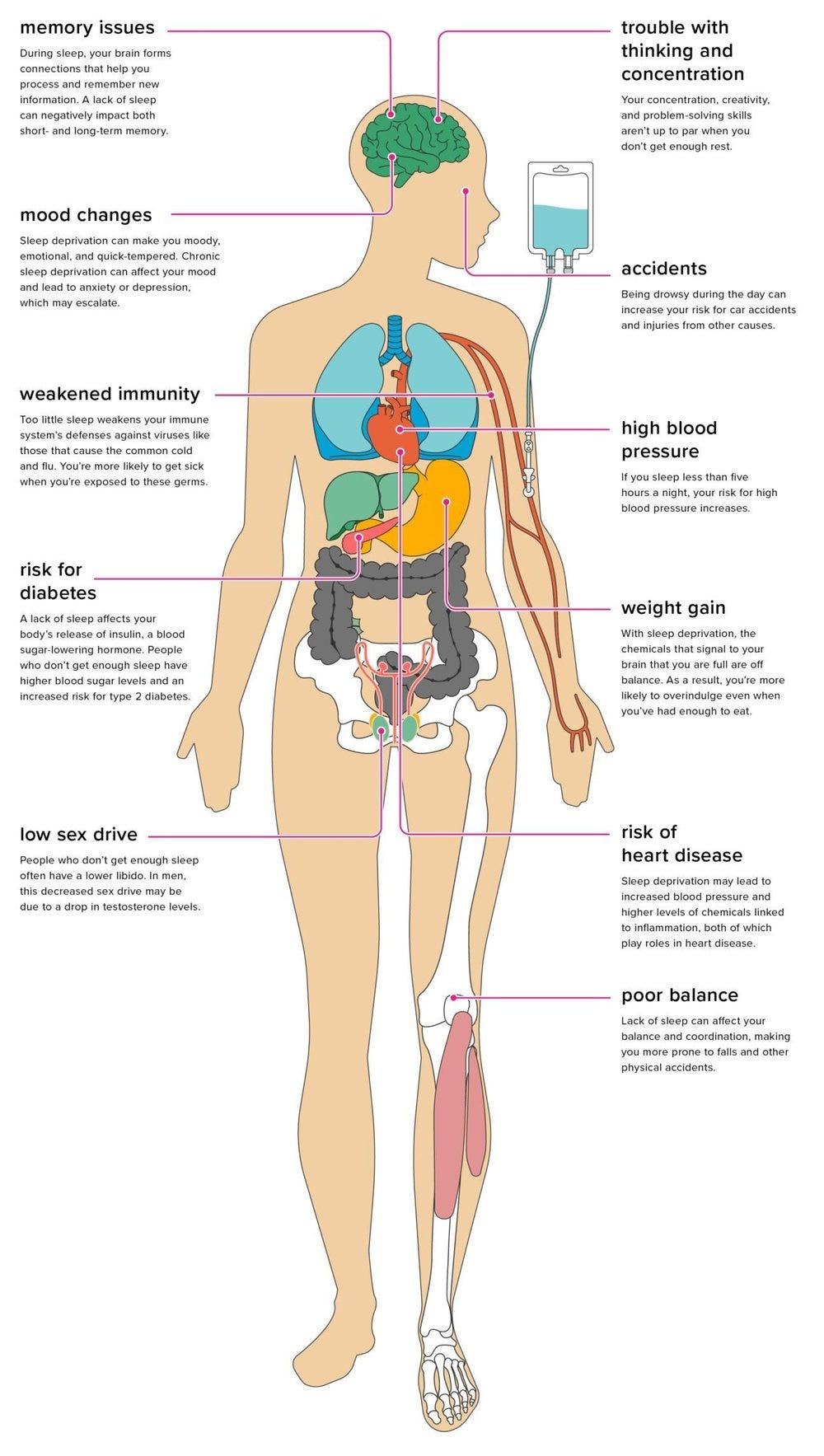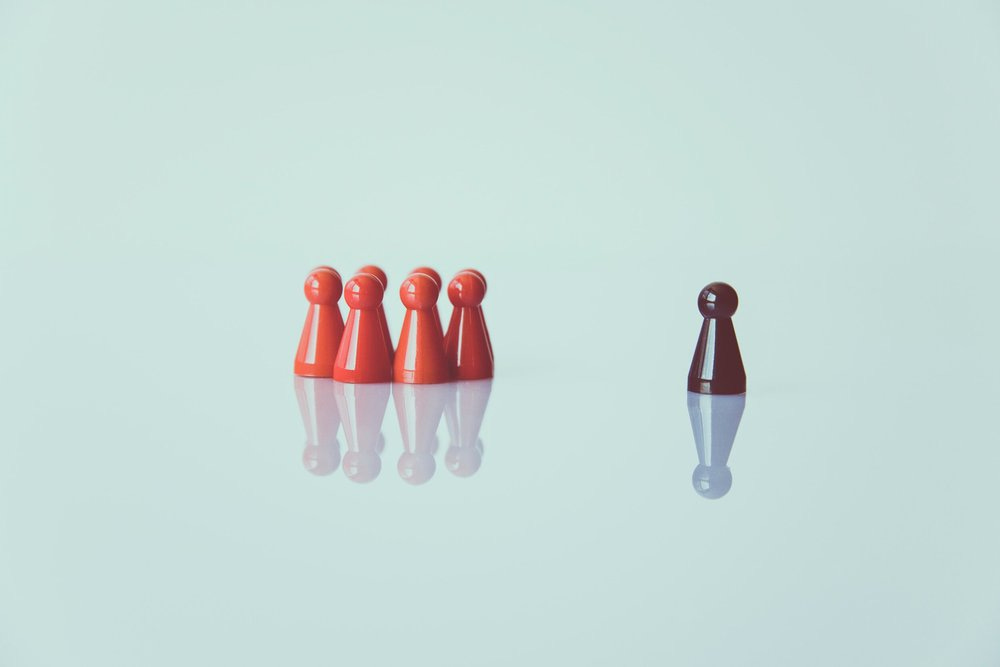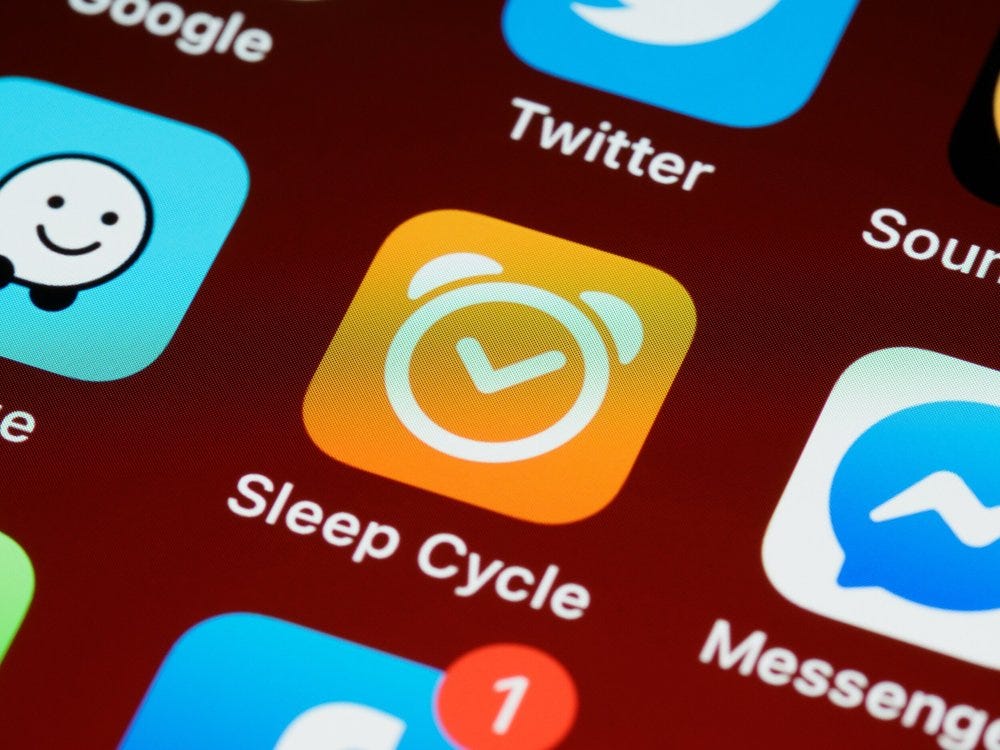Physical Wellness: Get Those zzz’s
BABY MODE
Ahhh, sleep. 😴For many parents out there, the idea feels like a distant dream. I know parents who have taken turns sleeping at hotels! 😂 I honestly think I would lose sleep feeling a self-imposed pressure to enjoy room service, watch documentaries, read a great book, and soak up whatever other amenities a hotel could provide. To each her own, I guess (and I recognize my own crazy by this point… we’re all on a journey…)!
I am currently sleep training my seven-month-old and I have a four-year-old and a two-year-old who have mastered the early wake-up call, so the thought of a solid night of sleep evades me. However, I have never needed excess sleep. Eight hours would tend to make me feel worse than six, but nothing beats uninterrupted hours in deep REM.
I would share some tips for sleep training, but I have learned with three boys that there is no one-size-fits-all method. Each of my boys has been completely unique - likely a result of both nature and nurture. My eldest only napped ON us, and he was a tough one to get to sleep in his own bed. Finally, at four years old, he falls asleep immediately in his bunk bed with his younger brother’s soothing presence below. My two-year-old, however, walks himself to his bed to nap, pushes me away after one kiss, and tells me to close the door on my way out. He knows sleep and he savors it. Wise kid. We’ll see where my third son pans out. Currently, he’s a great napper, but he also craves to nurse and snuggle somewhere between 4 am and 6 am every night.
Constantly going in and out of sleep for a baby and waking up early for young children is a tough place to be, but I know this phase will pass. Quality sleep will always be a primary focus for our entire family, and I think the evidence shows that kids who sleep well are healthier and happier. As are parents!
SLEEP AND OUR HEALTH
In 2021, it’s hard to imagine that anyone needs proof that sleep and physical wellness go hand-in-hand, but here is a great infographic to give an overview of some of the effects of sleep deprivation. Needless to say, it puts our physical wellness at real risk.
Sleep helps us to consolidate and store memories, process emotions, replenish glucose (the molecule that fuels the brain) and clear out beta-amyloid (the waste product that builds up in Alzheimer’s patients and disrupts cognitive activity). Insufficient sleep and fatigue lead to poor judgment, lack of self-control, and impaired creativity.
It's no secret that sleep is a major part of physical wellness, and here are some more reasons why:
Poor sleep is linked to higher body weight
Good sleepers tend to eat fewer calories
Good sleep can improve concentration and productivity
Good sleep can maximize athletic performance
Poor sleepers have a greater risk of heart disease and stroke
Sleep affects glucose metabolism and type 2 diabetes risk
Poor sleep is linked to depression
Sleep improves your immune function
Poor sleep is linked to increased inflammation
Sleep affects emotions and social interactions
LACK OF SLEEP = POOR MANAGEMENT
While I mention it’s hard to imagine people still not getting the point when it comes to the importance of sleep, somehow the business world continues to show a desire to remain in delusion. The toxic “winner takes all” and “survival of the fittest” mentalities somehow carry on.
According to the most recent data from the National Health Interview Survey, the proportion of Americans getting no more than six hours a night (the minimum for a good night’s rest for most people) rose from 22% in 1985 to 29% in 2012. An international study conducted in 2017 by the Center for Creative Leadership found that among leaders, the problem is even worse: 42% get six or fewer hours of shut-eye a night. (HBR)
Research shows that sleep deprivation doesn’t just hurt individual performance. When leaders lose sleep, their employees’ experiences and productivity are diminished as well. In other words, when a leader doesn’t feel rested, the whole team pays a price.
A trend that is (sadly) not so rare in leadership is sleep devaluation - when a leader discounts the value of sleep. Personally, I have experienced this in spades with bosses and partners who communicate in a sort of a disguised boastful manner that they only slept for a couple of hours or they emailed me regularly at 3 am or all hours of the night…every night. Clearly, the underlying message to the team was that sleep is unimportant and the culture rewarded those who would sacrifice it for the company's “mission.”
In our studies, we found that employees pay close attention to such cues and adjust their own behavior accordingly. Specifically, subordinates of leaders who model and encourage poor sleep habits get about 25 fewer minutes of nightly rest than people whose bosses value sleep, and they report that their slumber is lower in quality. (HBR)
Ultimately, this is a sign of poor leadership and ignorance on the actual importance of sleep on productivity and long-term organizational health. I've grown out of the systemic mindset that it is impressive to be exhausted, and I choose to speak out against dated thinking that produces more and more burnout. I now prioritize sleep as a part of my long-term vision for both life and work.
TIPS TO GET QUALITY SLEEP
Tips to get better quality sleep:
Establish a regular schedule
Develop a relaxing routine to shut down and turn off
No electronics in bed
Create an environment that encourages rest and soothes the mind and body
Avoid caffeine and alcohol
Wear glasses that filter out blue light
Get up, do something relaxing, and try again
Track your sleep with a wearable device or app
Take a 20-minute nap during the day
Make sleep a priority and you will be a more successful leader who encourages wellness and inspires better work in your employees.
Sleep and be well 💫






